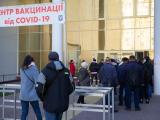Two new studies show that political affiliation had much more influence on Americans' decisions to stay home during the COVID-19 pandemic than did the relative numbers of infections in their communities.
Wide behavioral chasms
In the first study, led by Vanderbilt University researchers and published Dec 12 in Science Advances, researchers randomly surveyed 1,135,638 Americans from Apr 4 to Sep 10 about their political affiliation and if they had participated in social activities that could hasten the spread of COVID-19, such as eating at a restaurant, visiting family or friends, or shopping for groceries in person.
On average, 6,744 people responded to the survey each day. Using US Census Bureau American Community Survey estimates, the researchers weighted each day's sample to be representative of the US adult population.
Democrats were 13.1% less likely, and Republicans 27.8% more likely, than independents to have social contacts during the pandemic. And while Democrats and Republicans initially indicated concern about coronavirus infection and said they understood the need to physical distance, the proportion of Republicans who said they were "very or somewhat worried about COVID-19" began to decline, but it remained at the same level in Democrats.
The reduced concern about the pandemic corresponded to a more rapid return to social activities among Republicans, despite rates of infection in their areas.
By September, Republicans reported participating in nearly twice the number of daily social activities than Democrats. The split was even more striking in terms of engaging in the riskiest activities, such as visiting a restaurant or mingling with friends or family. Republicans had increased their number of social activities by, on average, 75%, while independents reported a 60% increase, and Democrats reported a 47% increase.
"Suggestively, this increasing partisan divide accelerates the same week President Trump tweeted about the need to 'liberate' Michigan, Minnesota, and Virginia (April 17)," the researchers wrote. "By early June, only approximately 40% of Republicans report being concerned compared to around 80% of Democrats. Republicans' concerns increased as the pandemic worsened through June and into July, but a large partisan gap persists."
The authors said that the results show that in the United States, COVID-19 is as much or more of a political issue as it is a public health one, adding that strong political leadership, particularly by the Republican party, appears to be most crucial for changing Americans' partisan-related behavioral differences during the pandemic.
The study "reveals not only that partisanship is more important than public health concerns for explaining individuals' willingness to stay-at-home and reduce social mobility, but also that the effect of partisanship has grown over time—especially among Republicans," the authors said. "All else equal, the relative importance of partisanship for the increasing (un)willingness of Republicans to stay-at-home highlights the challenge that politics poses for public health."
Role of political affiliation in public health messaging
The second study, published today as a research letter in JAMA Internal Medicine, involved the results of an online survey of young adults originally recruited as ninth-grade students in Los Angeles in 2013 to answer semiannual questions about their health behaviors.
Led by researchers at the University of Southern California, this study was based on the most recent survey, which took place from May 18 to Aug 3. Of 2,179 respondents, 891 identified themselves as Democrats (43.1%), 148 (7.2%) as Republicans, and 320 as independents (15.5%), while 706 (34.2%) said they didn't know or didn't want to answer.
A larger share of Republicans reported infrequent physical distancing (36 [24.3%]) than Democrats (46 [5.2%]) and independents (21 [6.6%]) and those who said they didn't know or declined to answer (40 [5.7%]).
Republicans reported a mean of 3.6 social activities in the 2 weeks before the survey, while Democrats reported 1.9, independents reported 2.2, and those who didn't know or didn't answer reported 2.2. Compared with other groups, Republicans were more likely to say they visited indoor public venues such as malls, restaurants, and bars and to attend or host gatherings of 10 or more people.
"In this study of young adults, predominantly living in Los Angeles County or elsewhere in California, self-reported Republican political party affiliation was associated with less frequent physical distancing and participating in social recreational activities that may perpetuate the COVID-19 pandemic," the authors said. "Our findings suggest that efforts to promote physical distancing among young adults during the COVID-19 pandemic should consider the role of political affiliation."






















